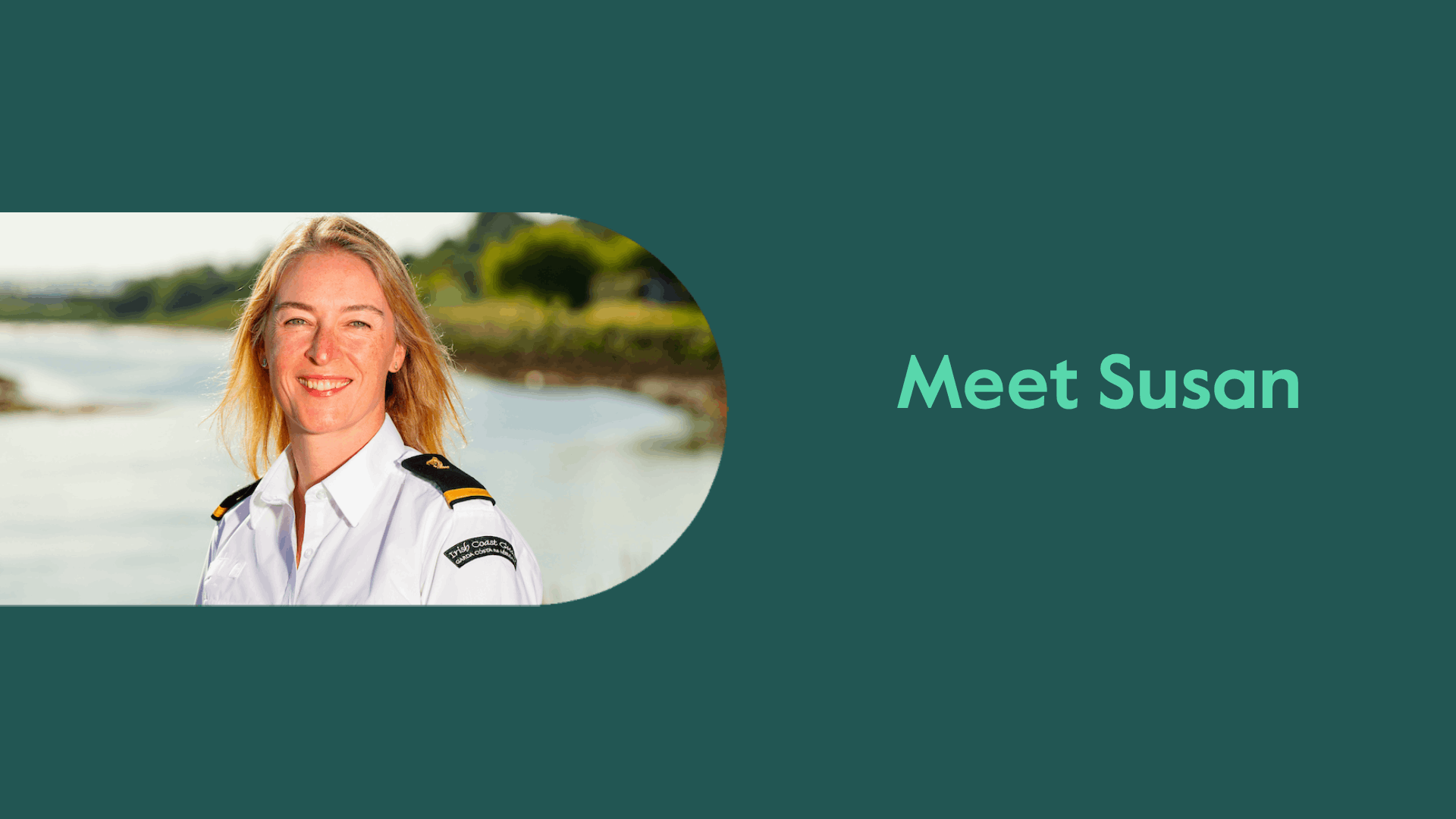
Susan gives us insight into her career as a Trainee Watch Officer in the Irish Coast Guard.
Please tell us a little bit about your role.
I am part of a team that provides a marine radio distress listening service and broadcast marine safety information around the coastline of Ireland 24/7 365 days a year. In addition to these duties, I assist in the coordination of search and rescue missions on the Irish coastline, cliffs and inland waterways while supporting other agencies such as An Garda Siochana. I am involved in monitoring Ireland’s Economic Exclusion Zone for pollution and responding to vessels in need of assistance or requesting a place of refuge.
What were your reasons for applying for your role?
I applied for this position because I have a strong interest in Maritime Search and Rescue and being involved in a Coast Guard Unit. As a Coxswain in this volunteer unit, I have gained skills necessary to make decisions and perform rescues under pressure. These essential skills are easily transferred from the ground into the radio room.
What do you value most about your job?
What I value most about a Radio Watch Officer is their calm presence they bring to a situation. They are the first line of communication from people in trouble. I have witnessed their ability to calm people and get relevant information to start getting emergency personnel on scene. It is a job that demands constant alertness, integrity and a genuine commitment to providing a direct line to help people at sea or near the coast of Ireland. It is a privilege to work alongside these people.
What are some of the benefits and supports available to you?
During training I have been given the opportunity to travel to the three Marine Rescue Coordination Centres in Dublin, Valentia, Co. Kerry, and Malin Head, Co. Donegal to get to know all the teams and secondly to familiarise myself with each operations room equipment. Also, if there are further training needs that arise there is opportunity to get these courses.
What opportunities has this role provided for you?
This role is allowing me to grow on my existing skills in Search and Rescue such as crisis management and staying calm under pressure. Having to make time critical decisions and giving clear instructions is essential in this line of work. It has also given me an opportunity to meet more colleagues in the Irish Coast Guard from other volunteer Units to Radio Officers.
What has surprised you since starting this role?
I was surprised the level of responsibility this role has, where people are relying on the accuracy and clarity of information especially in times of crisis. Sometimes your voice is the only voice that they will hear. Having said that when on watch you are never alone, there is always a team around you, working with you. Everyone in the room knows their role in a situation and when needed works as a team to get the task completed for a successful outcome.
What aspect of the role do you particularly enjoy?
In this job everyday is different, you cannot guess what sort of shift you will have. You never know who will ring or call in with a query or an emergency. This makes the role interesting, and I enjoy the challenge this brings daily.
Would you recommend a career in the public sector and why?
I certainly would. This is an important job providing a vital link from mariners or public when on or near the water if they need help. To be able to provide this essential link is an honour and I enjoy being part of a team that does this without question.
Anything else you would like to share?
Following changes to Irish Coast Guard recruitment criteria, candidates with a GMDSS certificate and two years' experience as a coxswain in a SAR unit are now eligible to apply. Though my career began in science—with a PhD in Molecular Parasitology and work in cancer research—I’ve also served 17 years as a volunteer in the Drogheda Unit of the Coast Guard, advancing to coxswain and gaining extensive training in marine and rescue operations. My academic background and hands-on SAR experience prepared me for a new role in the Rescue Coordination Centre, where I now help coordinate missions instead of executing them. I’ve seen the power of teamwork in challenging rescues, and I'm proud to continue serving my community from this new vantage point.
